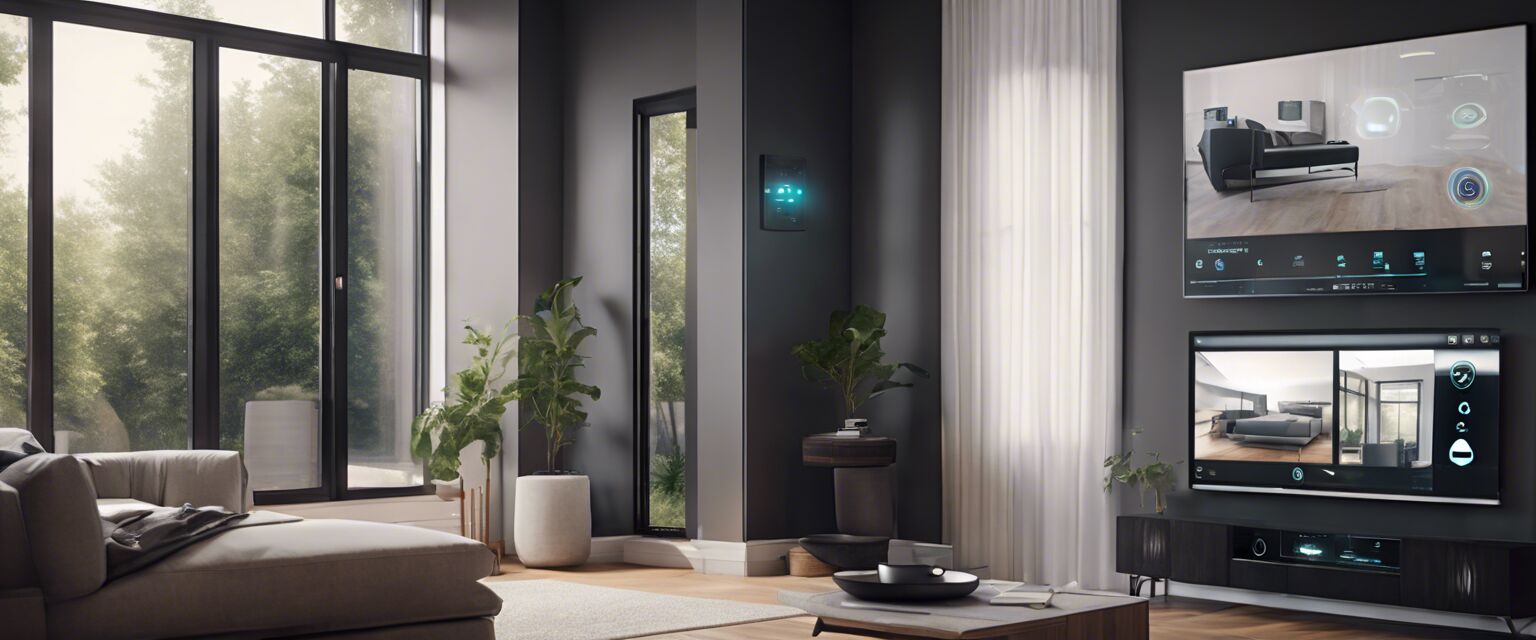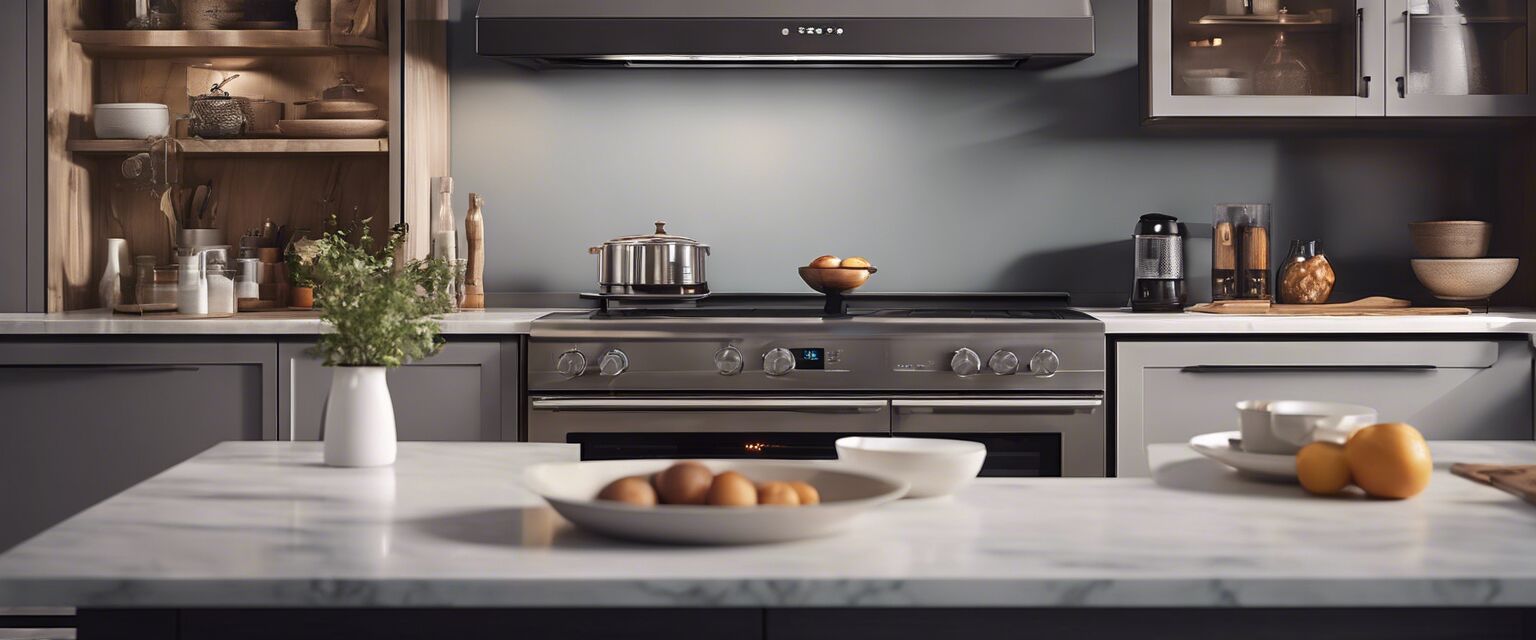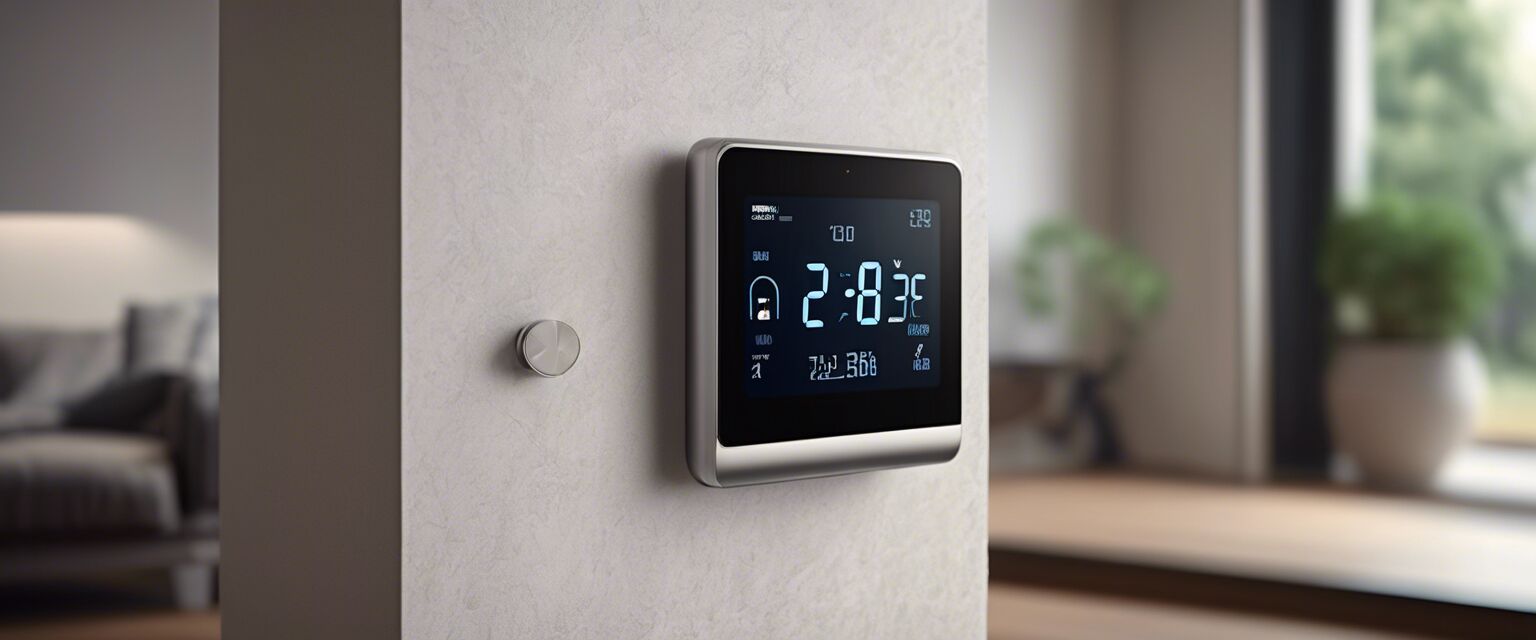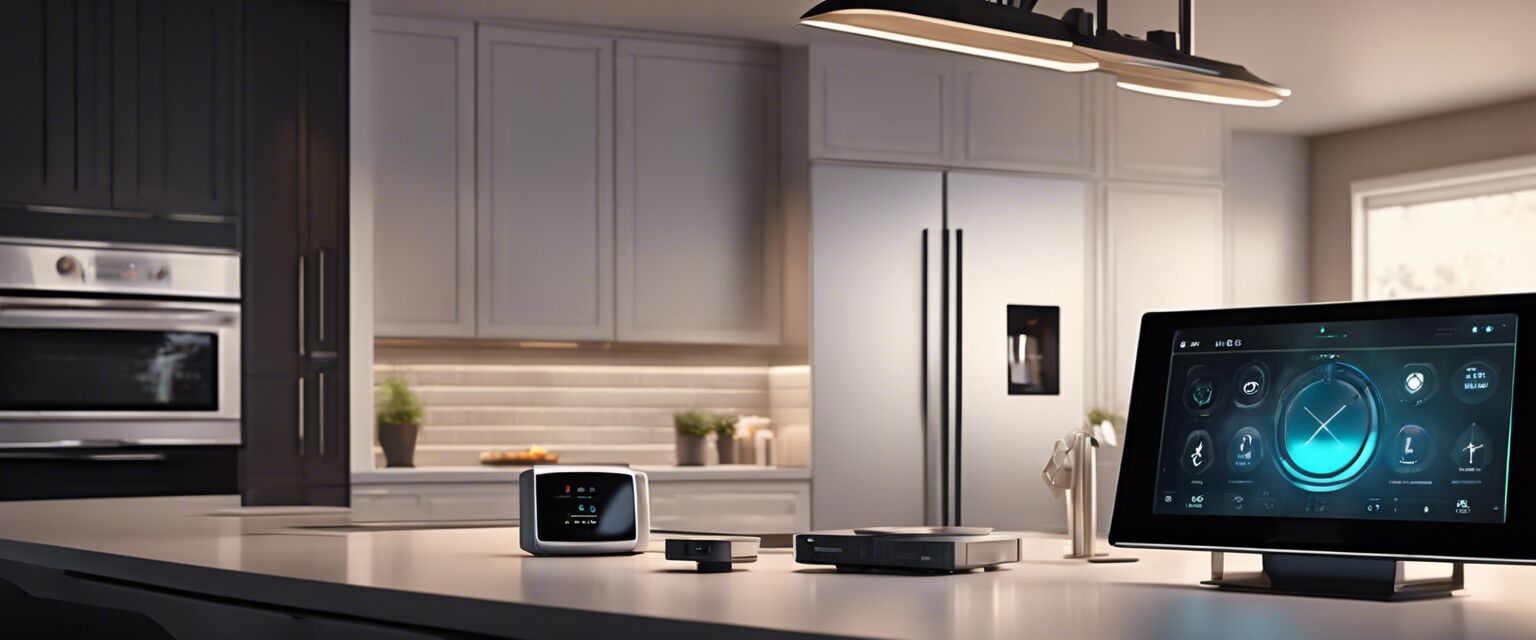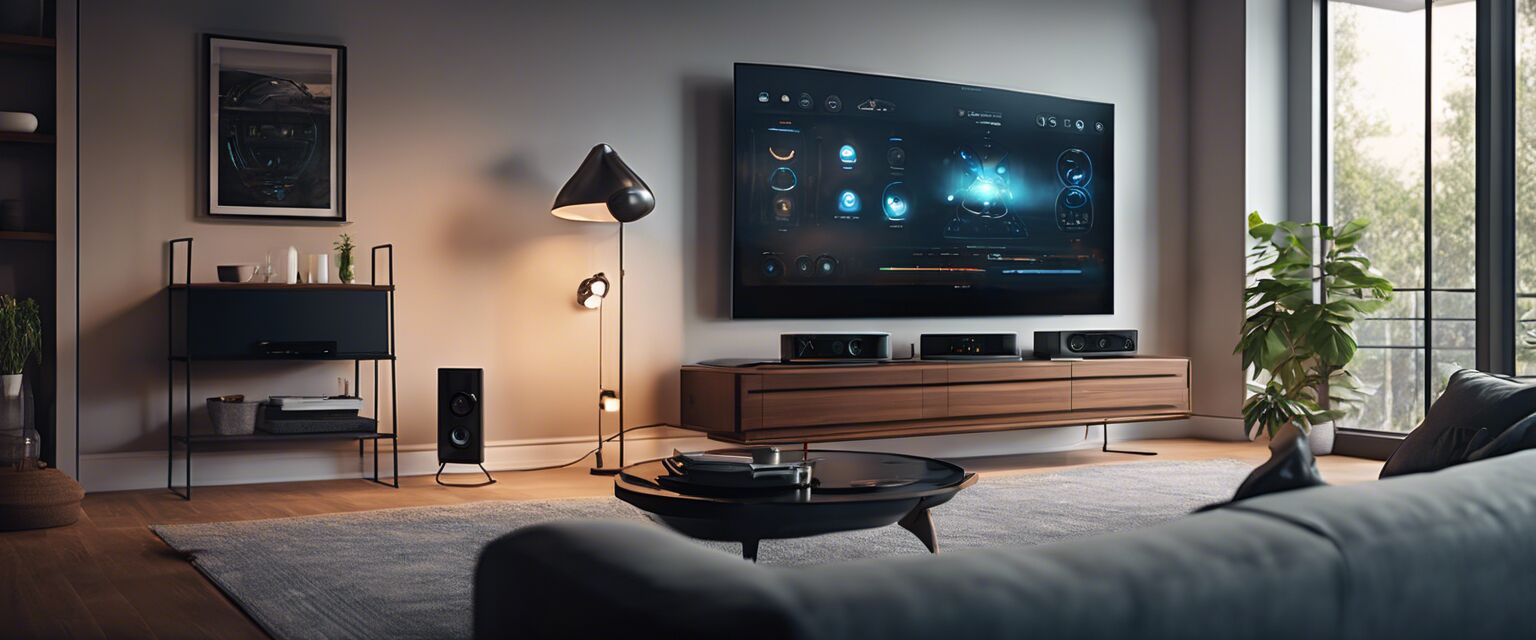
Automated home entertainment
Key Takeaways
- Automating home entertainment can enhance your viewing experience.
- Smart devices can control TVs, speakers, and gaming consoles seamlessly.
- Voice assistants are integral in managing your home entertainment setup.
- Integration of devices provides convenience and efficiency.
Welcome to the future of home entertainment! With advancements in technology, automating your home entertainment systems such as TVs, speakers, and gaming consoles is more accessible than ever. This article will guide you through the essential components and benefits of creating an automated entertainment environment in your home.
Understanding home entertainment automation
Home entertainment automation refers to the use of smart devices to control and manage your entertainment systems seamlessly. This includes everything from your television to sound systems and gaming consoles. By integrating these devices, you can enhance your entertainment experience, making it more enjoyable and efficient.
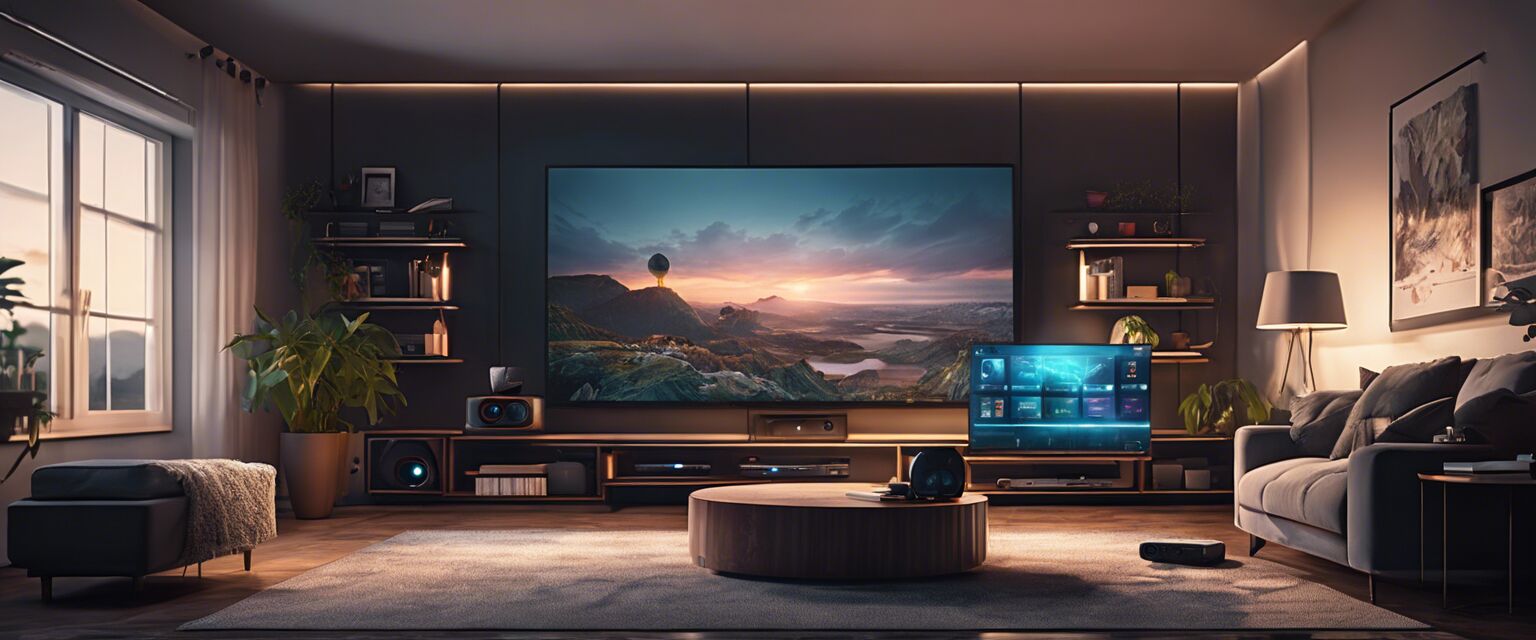
Benefits of automating your entertainment systems
- Convenience: Control all your devices from one place.
- Efficiency: Save time with automated settings and routines.
- Enhanced experience: Enjoy better sound and picture quality.
- Integration: Seamlessly connect devices for a unified experience.
Essential components for home entertainment automation
To create a fully automated home entertainment system, you'll need to consider several key components:
| Component | Description |
|---|---|
| Smart TV | A television with built-in internet connectivity and apps. |
| Smart Speakers | Speakers that can be controlled via voice commands or apps. |
| Streaming Devices | Devices that allow streaming from various services. |
| Smart Remote Controls | Universal remotes that can manage multiple devices. |
| Voice Assistants | Devices like Amazon Echo or Google Home that control your setup. |
Integrating your devices
Integration is crucial for a smooth automated experience. Here are some steps to help you integrate your home entertainment devices:
- Choose compatible devices that work well together.
- Set up a central hub or Smart Assistant for control.
- Connect your devices to the same Wi-Fi network.
- Install relevant apps on your smartphone or tablet.
- Configure voice commands for easy access.

Using voice assistants for control
Voice assistants play a significant role in automating your home entertainment. They allow you to control your devices hands-free, making the experience even more convenient. Hereâs how you can use them:
- Ask the assistant to play your favorite movie or music.
- Adjust volume levels with simple voice commands.
- Switch between devices without needing a remote.
- Set routines to turn on/off devices at specific times.
Popular voice assistant options
| Voice Assistant | Key Features |
|---|---|
| Amazon Alexa | Wide compatibility with smart devices, routines, and skills. |
| Google Assistant | Powerful search capabilities, smart home management. |
| Apple Siri | Smooth integration with Apple devices, voice control. |
| Samsung Bixby | Device integration within the Samsung ecosystem. |
Tips for beginners
- Start small by automating one component at a time.
- Research compatibility of devices before purchasing.
- Utilize online forums for troubleshooting tips.
- Keep your software updated for optimal performance.
Challenges of home entertainment automation
While automating your home entertainment can be rewarding, there are challenges to consider:
Pros
- Increased convenience and comfort.
- Enhanced entertainment experience.
- Time-saving through automation.
- Customizable settings for personal preferences.
Cons
- Potential compatibility issues among devices.
- High initial investment in smart devices.
- Learning curve for setup and integration.
- Dependence on internet connectivity.
Conclusion
Automating your home entertainment systems offers numerous benefits, including convenience, efficiency, and enhanced experiences. By carefully selecting compatible devices and utilizing voice assistants, you can create a streamlined entertainment environment that meets your needs. With this guide, you're well on your way to revolutionizing your home entertainment setup.
For more information on specific categories of smart home devices, check out our pages on Home Entertainment, Home Security, Smart Cleaning Gadgets, Smart Kitchen Appliances, and Smart Lighting.


